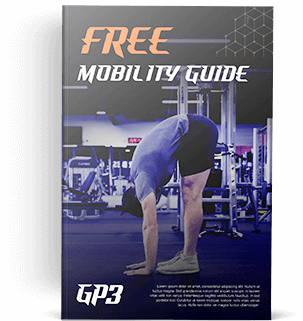Key Points:
1. Our beliefs about ourselves inevitably become warped, for better or worse.
2. Our perception of how we look is especially susceptible to this.
3. Comparison and seeking external validation are, at best, a temporary fix.
Estimated reading time: 5-10 minutes
Well, the last couple of weeks were certainly a hard pivot away from the concrete world of strength training, huh?
Perhaps the best strategy for growing an audience isn’t to keep them guessing about where what shows up in their inbox will fall on the spectrum of not putting ice on injuries to exploring philosophical questions about the nature of reality, but hey. Since starting this blog, I realized it’s morphed into roughly 50% sharing information I think you all will find interesting and useful, and 50% a semi-public diary.
Today’s topic firmly fits into both categories.
Body dysmorphia is something I would imagine we all experience to a certain degree. There’s a simple reason for this, as well. This is as existential as I’ll get today, but basically, when experience is entirely subjective, which it is, we have no way of knowing whether our perceptions are accurate or not. Further, due to the subjectivity of perceptions, their accuracy isn’t something that we can definitively prove one way or the other. What we can do is seek points of comparison or ask others for external validation, but that’s not typically a great idea either.
Resting our happiness or sense of security on the opinion of others leads to many obvious pitfalls. To illustrate this, here’s an incredible quote from one of my favorite offers, Rupert Spira, “If we invest our happiness in an intermittent object, substance, activity, relationship, or state, we are, by definition, securing unhappiness for ourselves.
And yet, those places are typically exactly where we invest our happiness.
Comparison is the thief of joy
The net result of all of this subjectivity and unverifiable perceptions is that our viewpoint of our own physical appearance inevitably becomes warped. While this can sometimes take the form of convincing ourselves that we aren’t actually, say, losing hair or getting more wrinkles, it usually ends up with us being much harder on ourselves than we should be. Let’s look at some examples.
To start, I’m certainly not immune. I realized this recently when I was scrolling through my photos looking for a particular image from a few years ago. Along the way, I found a shirtless selfie I took in 2017. Yes, I used to do that a lot; please don’t judge me too hard.
Anyway, I was struck by two things. The first was how shredded my abdominal area looked, and the second was how small my arms and chest seemed to be.
Interestingly, at the time, I perceived neither of those things! I remember living in a constant state of slight dissatisfaction about the appearance of my midsection, and yet here my abs looked like they could probably be on the cover of a fitness magazine. I’ll admit, “2022 me” even experienced some small flashes of envy.
But, I made the somewhat odd assessment, “I don’t remember feeling like I looked like that.”
By contrast, I don’t remember being even mildly bothered by the size of my arms and chest in 2017. And yet, looking at them years later, I thought, “Wow, it looks like I didn’t even work out.”
So…who’s right?
Here’s where things get a bit tricky. Not only because both of the “whos” in question were me, but because it’s impossible to answer. Both perceptions were equally correct and incorrect. They were simply thoughts, which all hold the potential to be wrong.
Here’s another example.
This year, I’ve been working with a male client in his late 20’s, helping him return strength and mobility to his knee after a series of serious injuries.
My subjective perception is that after seeing him, most people would instantly agree with the assessment, “Dude is jacked!”
And yet, when we were doing a particular exercise, he said something along the lines of, “I was a lot better at these when my legs were big.” I jokingly pushed back a bit and said, “What do you mean ‘were’ big?” He chuckled and made a comment about how much more muscular he used to be overall.
A Perception is A Reality
Now, this guy looks like he could be a week or two away from a bodybuilding competition. As I implied earlier, I believe most people would agree.
However, he did not. And that’s an important distinction. The old cliche tells us that “perception is reality,” but I’d like to amend that a bit.
I believe it’s far more accurate to say, “A perception is a reality.” The original version of the statement implies too much certainty and truth. The modified version reminds us that it’s simply one version of the truth.
So, in the case of my client, which is accurate? Is he a big, muscular guy, or is his physique in need of some hypertrophy?
Again, both statements are equally right and equally wrong.
While that may sound unsatisfying at first, there’s great freedom in it. Because here’s the truth. Unless you are the undisputed best in the world at something, there will always be someone who has more of or is better at whatever the thing is that you value.
When you’re exposed to someone “better than you” in that area, it’s going to make you feel worse about yourself, especially if your happiness is dependent upon being perceived a certain way. Unless of course, you’ve realized that you don’t need to defend any particular identity.
Plus, even if you are the best at whatever “the thing” is, that’s fleeting. Someone will eventually take your title, and then what?
So, the takeaway is to simply remember that whatever perception you’re having in this moment is simply one possibility. It may or may not be wrong. Its accuracy is impossible to determine and irrelevant anyway. Wouldn’t it be foolish to give something so flimsy the power to determine our happiness? I certainly think so!
How do we know when we’re in the “good times?”
One of the great mysteries in life is never knowing when a particular time period is the “best” or “worst” it will ever be. There’s also beauty in that. I remember having a negative internal reaction whenever an adult would say the following when I was a college student. “Enjoy it, because these are the best years of your life!”
In response, I’d think something like, “Man, I sure hope not. I plan on having at least a few decades left of living after graduating. I don’t want it to be the best it’ll ever be in my early 20’s!”
For now, I simply wish to comment on the general pointlessness of labeling particular time periods in one’s life as good or bad. There seems to be quite a lot of downside to doing so, and incredibly limited upside.
But…what do we do when we know a particular time period is “the best?”
One of my best friends agreed to let me interview him for a future post, and some of what we talked about is highly relevant here. Will and I played college soccer together, and he recently completed his first marathon in 3 hours and 16 minutes. For context, that’s only 16 minutes shy of the time he would have needed to qualify for the Boston Marathon. That race is by far the most selective in the United States, and the only example I know of someone posting a qualifying time in their first race was Lance Armstrong…with a time of 2 hours, 59 minutes, and 36 seconds.
So, one of the greatest endurance athletes of all time, with a history of using performance enhancers, barely qualified for this on their first attempt.
The point is, Will put an incredible amount of effort into the final four months of his training program, and was starting from a point of better cardiovascular shape than most individuals. During his training process, I helped him with some strength, mobility, and nutrition-related planning, and when he was only a few weeks away from the race, he asked a poignant question.
It was something like, “I’m probably the leanest I’ve ever been, but I know this isn’t sustainable. How do I handle knowing I might never like how I look as much as I do now?”
This is a fantastic line of inquiry. There are few instances in life when we know with relative certainty that a particular circumstance is likely the best it will ever be. But when we do know this, it can provide quite a mental challenge.
In my opinion, there are a few key steps we can take:
1. Realize that whatever this thing is, it doesn’t define us.
Yeah, yeah, back to identity again, right? The point is, we’ll still be us without “it,” whatever “it” is. It’s only scary to face the prospect of something never being as good as it is now if we highly value it.
“I’ll never have as many jelly beans in my possession as I do now.”
For most of us, that truth would be met with a collective shrug, right?
But…try these on for size
“I’ll never be as respected as I am right now,” or, I’ll never look as good as I do right now, or “I’ll never be as successful as I am right now,” or, “I’ll never be as close to my partner as I am right now.”
Much more uncomfortable to face, right?
2. Realize that we have no way of knowing whether that thought is actually true.
For something like muscularity, leanness, and/or performance on a physically demanding endeavor, it’s certainly more likely that we’ll be at our best in our 20’s and 30’s, but it’s by no means certain.
Never past your prime, right?! On the surface, that’s obviously ridiculous. We will all eventually be “past our primes” in many facets of life, but the mindset behind the sentiment is still important. Given the human brain’s endless ability to change and the body’s incredible capacity to heal itself, there are near-infinite ways we can be better in our 80’s than we were in our 20’s.
And in Will’s case, maybe he’ll run a sub-3 hour marathon in his 40’s. Who knows, right? The point is to remember that the possibility exists.
3. We have the power to be okay whether it is or isn’t true.
I plan to write more about this in the future, but here’s a key final takeaway. In any pursuit, suffering comes from attachment to a particular outcome. While admittedly difficult to avoid creating expectations around how anything will turn out, things are often a lot worse when we identify with the thought that says they must end up a certain way.
To belabor that point a bit, think of the tremendous freedom that could come with knowing that whether you succeeded or failed at whatever you decided to pursue, you would be okay. Would you truly be scared of trying anything?
Probably not. And I think that’s pretty damn cool. The same goes for looking in the mirror. No matter what our reflection shows, it can’t actually hurt us.
Before you go, I’d love to hear from you! Have you thought about body dysmorphia before? How did it feel to consider that all your perceptions about how you look are subjective and thus, unverifiable? Freeing, scary, both? Reply to this email and let me know!

